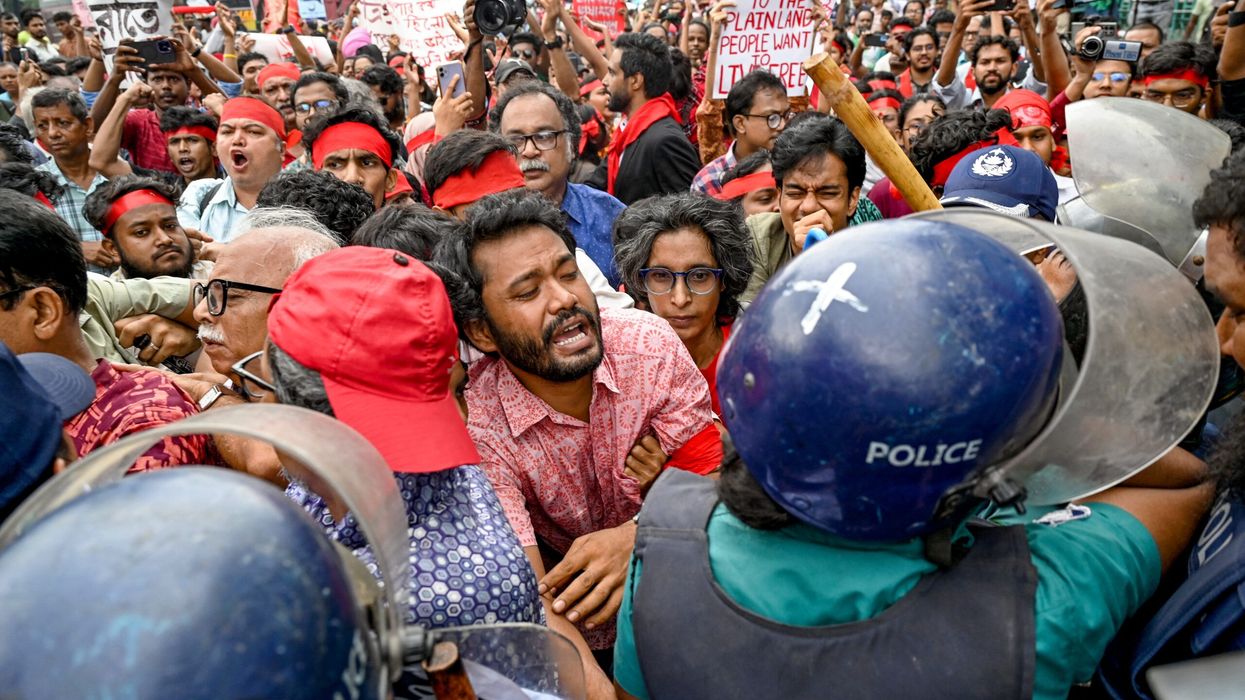BANGLADESH'S government declared a day of mourning on Tuesday (30) for the victims of violence in nationwide unrest, but students criticized the gesture as disrespectful to classmates killed during clashes with police this month.
Student rallies against civil service job quotas ignited days of violence that resulted in the deaths of at least 206 people, including several police officers, according to an AFP count of police and hospital data.
The clashes in Bangladesh were among the worst during prime minister Sheikh Hasina's 15-year tenure.
However, her government has since largely restored order through mass arrests, troop deployments, and a nationwide internet shutdown, which was lifted on Sunday (28). Her administration announced that the violence, destruction of government buildings, and "terrorist activities" at the height of the unrest would be solemnly marked on Tuesday with prayers in mosques nationwide.
However, Students Against Discrimination, the group that organised the initial protests, claimed the government's announcement was intended to deflect blame for the death toll from police.
"Instead of ensuring justice for the mass murders committed by the state forces, students have been cruelly mocked," Mahin Sarker, one of the group's coordinators, said in a statement.
'The mass arrest and arbitrary detention of student protesters is a witch hunt by the authorities'
More than 10,000 people have been arrested following the unrest, according to the Daily Star newspaper, prompting criticism from rights groups over the extent of the police dragnet.
"The mass arrest and arbitrary detention of student protesters is a witch hunt by the authorities to silence anyone who dares to challenge the government," Amnesty International's Smriti Singh said in a statement.
Troops are still patrolling urban areas and a nationwide curfew remains in force, but it has been progressively eased since the start of last week, indicating the government's confidence that it is in control. Protests began this month over the reintroduction of a quota scheme reserving more than half of all government jobs for certain groups.
With around 18 million young Bangladeshis out of work, according to government figures, the move deeply upset graduates facing an acute jobs crisis. Critics argue the quota is used to stack public jobs with loyalists of the ruling Awami League.
The Supreme Court drastically cut the number of reserved jobs after the unrest but fell short of protesters' demands to scrap the most contentious aspects of the system.
EU foreign policy chief calls for full accountability
Hasina, 76, has ruled Bangladesh since 2009 and won her fourth consecutive election in January after a vote without genuine opposition. Her government is accused by rights groups of misusing state institutions to entrench its hold on power and stamp out dissent, including the extrajudicial killing of opposition activists.
Protests had remained largely peaceful until attacks on demonstrators by police and pro-government student groups. "There must be full accountability for the numerous instances of use of excessive and lethal force by the law enforcement authorities against protesters and others," EU foreign policy chief Josep Borrell said in a statement Tuesday.
Hasina's government has accused opposition parties of hijacking the protests to cause unrest.
Home Minister Asaduzzaman Khan told reporters at the weekend that security forces had operated with restraint but were forced to open fire to defend government buildings. (AFP)




